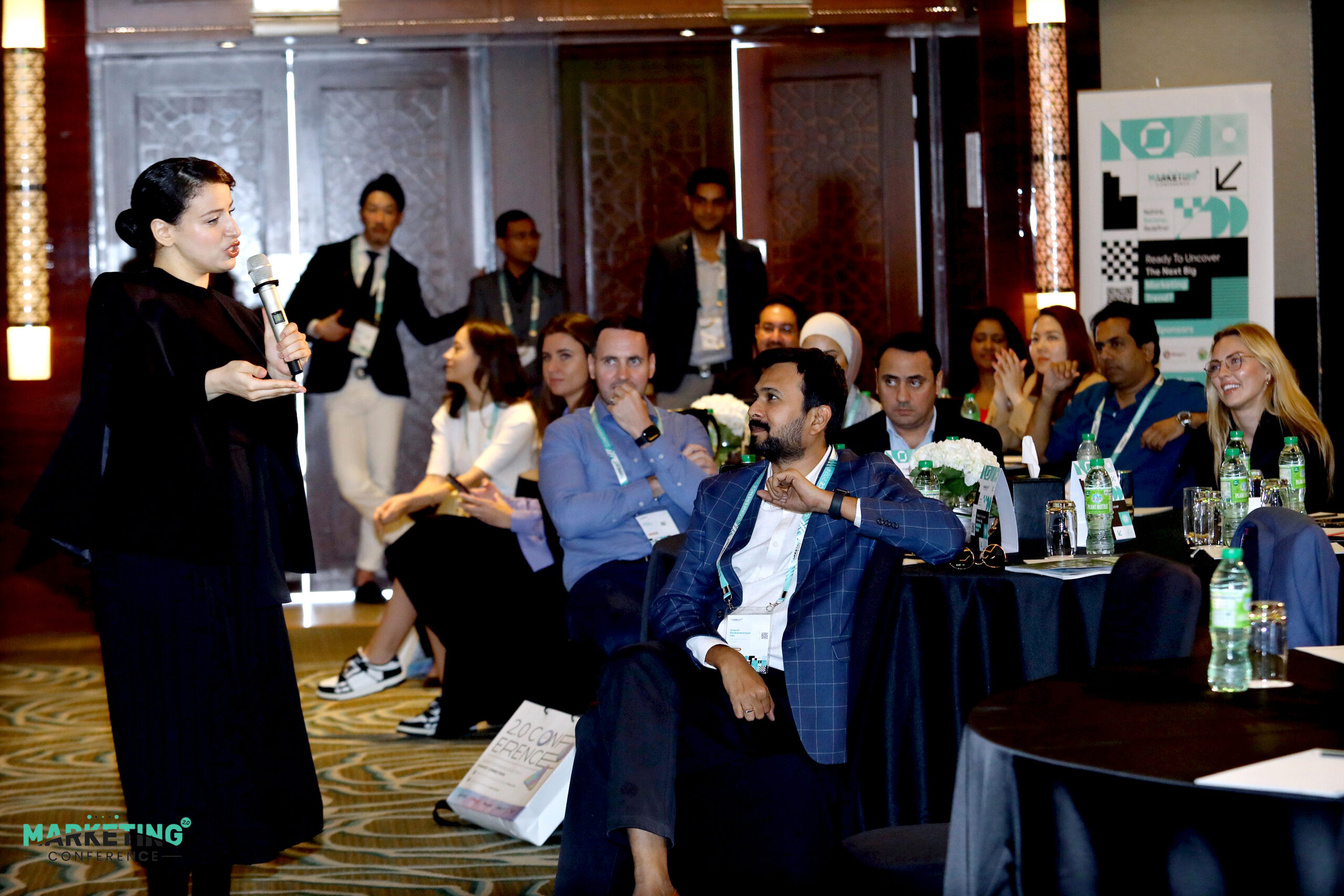
Immersive marketing is revolutionizing the way brands connect with their audience. By creating captivating, multi-sensory experiences, companies can build deeper, more meaningful connections that leave a lasting impression. Gone are the days of passive consumption; today’s consumers crave active engagement, craving to be transported into the world of the brand. Through innovative technologies, immersive storytelling, and personalized interactions, brands can now offer their audience an unparalleled level of immersion, promoting a sense of belonging and loyalty that traditional marketing simply cannot match.
In this blog, you’ll explore the power of immersive marketing shared by the experts at the global marketing conference 2024, notably the Marketing 2.0 Conference, and uncover the secret to crafting unforgettable brand experiences that captivate and inspire.
Table of Contents
Psychology Behind Immersive Experiences
Immersive experiences have captivated audiences for decades, offering a level of engagement and emotional impact that traditional media often struggles to match. Understanding these captivating experiences’ psychological mechanisms is key to creating truly transformative and memorable encounters.
Sensory Engagement
Immersive experiences captivate users by engaging multiple senses simultaneously. From visually striking environments to immersive soundscapes, the sensory integration creates a sense of presence and heightens emotional responses.
Cognitive Immersion
Immersive experiences challenge users to actively participate, triggering cognitive processes like problem-solving, decision-making, and spatial awareness. This engagement fosters a sense of agency and flow, where users become deeply absorbed in the experience.
Emotional Impact
The combination of sensory and cognitive elements in immersive experiences can elicit powerful emotional responses, from awe and wonder to excitement and even catharsis. This emotional connection enhances the overall impact and memorability of the experience.
According to the experts of the upcoming marketing conferences in the USA, by understanding the psychological underpinnings of immersive experiences, designers and researchers can create even more captivating and transformative encounters that leave a lasting impression on users.
Benefits Of Immersive Marketing
Immersive marketing is a dynamic strategy that plunges consumers into captivating brand experiences. As per the expert’s insights from the global marketing conference 2024, it offers a plethora of benefits for businesses aiming to stand out in today’s competitive landscape.
Enhanced Brand Recall
Immersive experiences create lasting memories, imprinting your brand into consumers’ minds with vivid clarity. Through interactive storytelling and sensory engagement, customers build emotional connections, leading to higher brand recall and recognition.
Increased Engagement and Interaction
Traditional marketing methods often struggle to capture attention in our fast-paced digital world. Immersive marketing, however, captivates audiences by offering participatory experiences, encouraging active engagement rather than passive consumption.
Deeper Consumer Insights
By immersing customers in interactive environments, businesses gain invaluable insights into consumer behavior and preferences. Real-time feedback allows for agile adjustments, ensuring marketing efforts are finely tuned to resonate with target demographics.
Embrace immersive marketing to transform your brand’s narrative, build deep connections with consumers, and propel your business toward sustained success in the digital age.
Strategies For Creating Immersive Brand Experiences
Creating immersive brand experiences is crucial in today’s competitive market to captivate audiences and build brand loyalty. Businesses can ensure memorable interactions that resonate with consumers by employing strategic approaches. Here’s how:
Understanding Audience Psychology
To create immersive experiences, it’s essential to understand what drives your audience. Conduct thorough research to uncover their preferences, pain points, and aspirations.
Personalization & Customization
Craft personalized experiences that resonate on an individual level. Utilize data analytics and customer insights to customize interactions and make consumers feel valued.
Multi-Sensory Engagement
Engage consumers through multiple senses to create a lasting impact. Incorporate elements such as visuals, sounds, scents, and tactile experiences to evoke emotions and enhance brand recall.
According to the experts of the marketing conferences in the USA, by implementing these strategies, brands can build deeper connections with their audience, promoting loyalty and advocacy. Embrace innovation and creativity to deliver immersive experiences that leave a lasting impression.
Future Trends In Immersive Marketing
Immersive marketing is revolutionizing how brands engage with consumers, offering experiences that transcend traditional advertising. As technology evolves, the dynamic trends in this field continue to shape the landscape, reflecting its ongoing evolution.
Augmented Reality (AR) Experiences
Incorporating AR into marketing campaigns blurs the boundaries between the physical and digital world, crafting immersive and interactive experiences. Consumers can visualize products in their own space, driving deeper engagement and informed purchase decisions.
Virtual Reality (VR) Experiences
VR allows brands to immerse consumers in captivating virtual environments, promoting emotional connections and brand loyalty. The endless possibilities for immersive storytelling are endless, from virtual product demonstrations to branded adventures.
Gamification Strategies
Gamification injects fun and interactivity into marketing efforts, incentivizing consumer participation and driving brand recall. Whether through interactive quizzes, challenges, or rewards systems, gamified experiences captivate audiences and drive meaningful interactions.
As technology continues to evolve, immersive marketing’s future holds endless possibilities for brands to captivate audiences, drive engagement, and build meaningful connections in an increasingly digital world. For brands that aim to stay ahead in the dynamic marketing landscape, embracing these trends will be essential for success in an ever-evolving digital era.
Conclusion
In conclusion, immersive marketing stands as the vanguard of brand engagement, offering a transformative approach to connecting with consumers. According to the experts of the Marketing 2.0 Conference, by leveraging technologies like AR, VR, and gamification, brands craft experiences that transcend traditional advertising, leaving indelible impressions on audiences.
Immersive marketing creates lasting emotional connections through personalization and multi-sensory activations, promoting brand loyalty and advocacy. In an evolving digital world, brands must adopt immersive marketing strategies to craft memorable experiences and maintain a competitive edge in today’s fierce market.